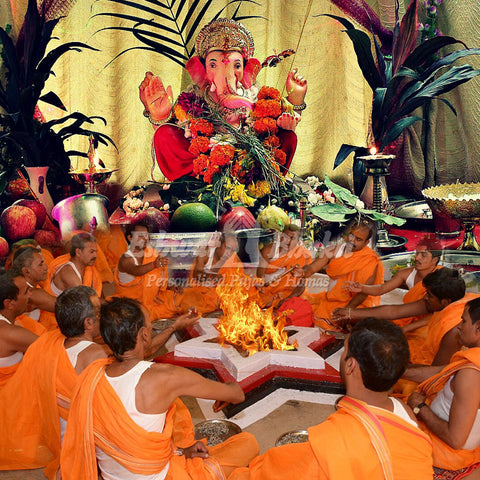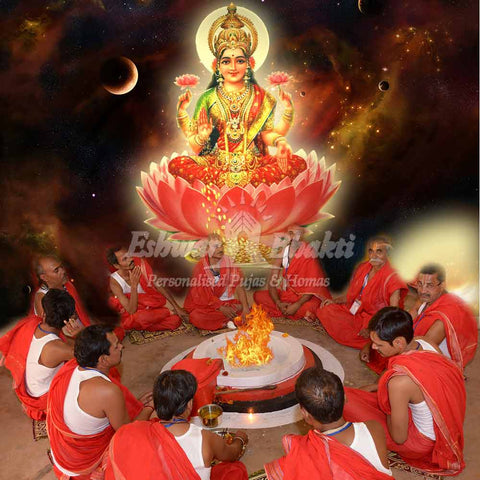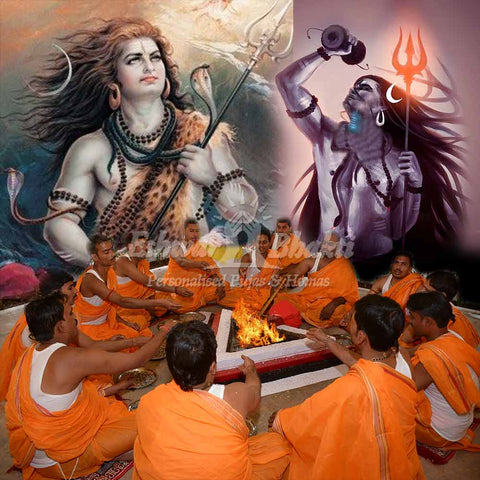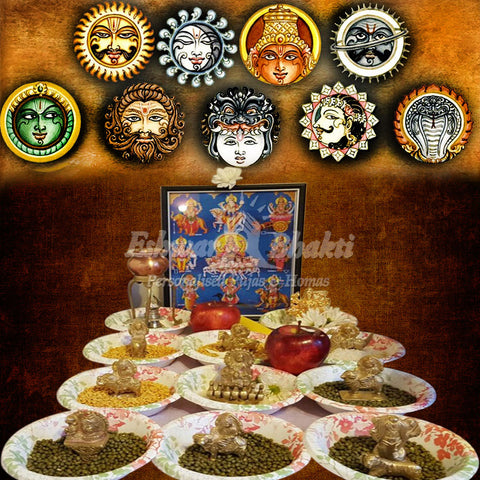Why do we have Altar at home?
Having a home altar or shrine is an intrinsic part of Hinduism. Most of us might not be able to visit a temple to offer our prayers regularly. If you have a home altar or a prayer room, you can worship the Gods and Goddesses as well as convey your devotion to the divine entity. Though there aren't any references in the ancient Hindu texts regarding the usage of home altars, it has been in use for several centuries in India.
The Bhagavat Gita encourages the devotees to worship God with "loving devotion." There is another significant mention in the Bhagavat Gita in Chapter Nine, verse 16, which states, "I am the act of offering." This means that by offering pujas and prayers, we are offering ourselves. So, when we have a home altar, we can worship the deities without any hindrances.

According to the Vedic Shastra, placing the idols or images of deities in the home altar or shrine can improve your connection with God. God accepts love, and daily worship is a way of providing your adoration as well as respect to God. In a home altar, you can have different items for conducting Pujas and other rituals. These items correspond to the Panchayandriyas or the five bodily senses. They are bells, food offerings, kumkum, idol, and incense stick. Let us have a look at these essential items and their significance.
1. Bells - Ringing bells in the home altar is a way of awakening God. The frequency of the sound from the bells can provide us with positive vibrations. It helps in invoking our sense of hearing.
2. Food offerings - Devotees often offer food items like sweets and fruits to the deities. It is later on consumed as Prasad by the members of the family. It helps in invoking our sense of taste.
3. Idols and pictures of Gods and Goddesses - In almost every home altar, we have the paintings or idols of Gods and Goddesses. It helps us to focus on and imbibe the positive energy emanated from them. While placing a idols, it is essential to conduct Pran Pratishta. The idols or pictures invoke our sense of sight.
4. Incense and flowers - They remind us about the presence of Brahman and also help in purifying the air. They assist in the invocation of our sense of smell.
5. Kumkum, sandal paste, and Basma - After the completion of a Puja, their application on our forehead can have several benefits. It helps us to invoke our sense of touch.
Things to know before having a home altar: The Vastu Shastra states that the puja room or home altar must be either facing East or West. They must not face North or South. The ideal place to have a home altar is in the North-East corner of the house. It is because the sun rays fall from this direction, and it enhances the flow of positive energy. Other essential factors to consider while having a home altar include-
1. Always place the images of the Gods and Goddesses on a table or consider hanging them on the wall. When you position them on the ground, it can be disrespectful to the deities.
2. Place the idols and images facing West or East.
3. Avoid having home altars near washrooms and in bedrooms.
4. Place the essentials of the home altar, such as offerings, bells, conch, and incense sticks, in the southeast direction.
5. Try to have the home altar in a room with enough sunlight. Avoid having them under staircases or places without proper ventilation.
6. Having home altars in the center of the house can enable the active flow of air.
7. Always light the lamp or Diyas in front of the images or idols. It improves our vision and aids us to focus on our prayers.
Significance and benefits of having home altars: Home altars allow us to worship daily. You can conduct prayers, pujas, japas, or the chanting of mantras, and other rituals in your home altar. You can have Pujas on special occasions like festivals and birthdays.
Lighting lamps and offering prayers in the morning can have a plethora of positive benefits. It is a place of retreat. Various traditions of Hinduism have different ways of offering prayers. The significance of having a home altar includes:
1. It is a way of communicating with the divine power.
2. Daily Pujas at home altars by chanting Vedic mantras aids us in imbibing positive energy.
3. Placing a home altar in the North East can assist you in accepting the benefits of the sun rays in the morning. It is also similar to gaining blessings from Surya Deva, the Sun God.
4. Conducting Aarti while praying is an invocation of the God of Fire or Agni.
If you have a home altar in your house, it can bring forth several benefits to your house as well as to the people residing in that place. They include:
1. Having a properly ventilated home altar can aid in the flow of air. Sunlight and ventilation are two significant factors in brightening up our mood.
2. Home altars in a clean place without any disturbances help us to meditate. Meditation is a great way to relieve stress, anxiety, and tension.
3. It assists in bringing a family together, which is a way of spreading happiness and connection.
4. Having a home altar facing East or West can provide the family with prosperity, health, and peace of mind.
5. Home altars help us to improve our connection with the divine. Conducting regular prayers can enhance our spiritual growth.
Home altars, thus, play a significant role in Hinduism. Various cultures in India have different architectural ways of constructing a home altar. However, the aim of having a home altar is to offer prayers, pujas regularly, and on auspicious occasions.




